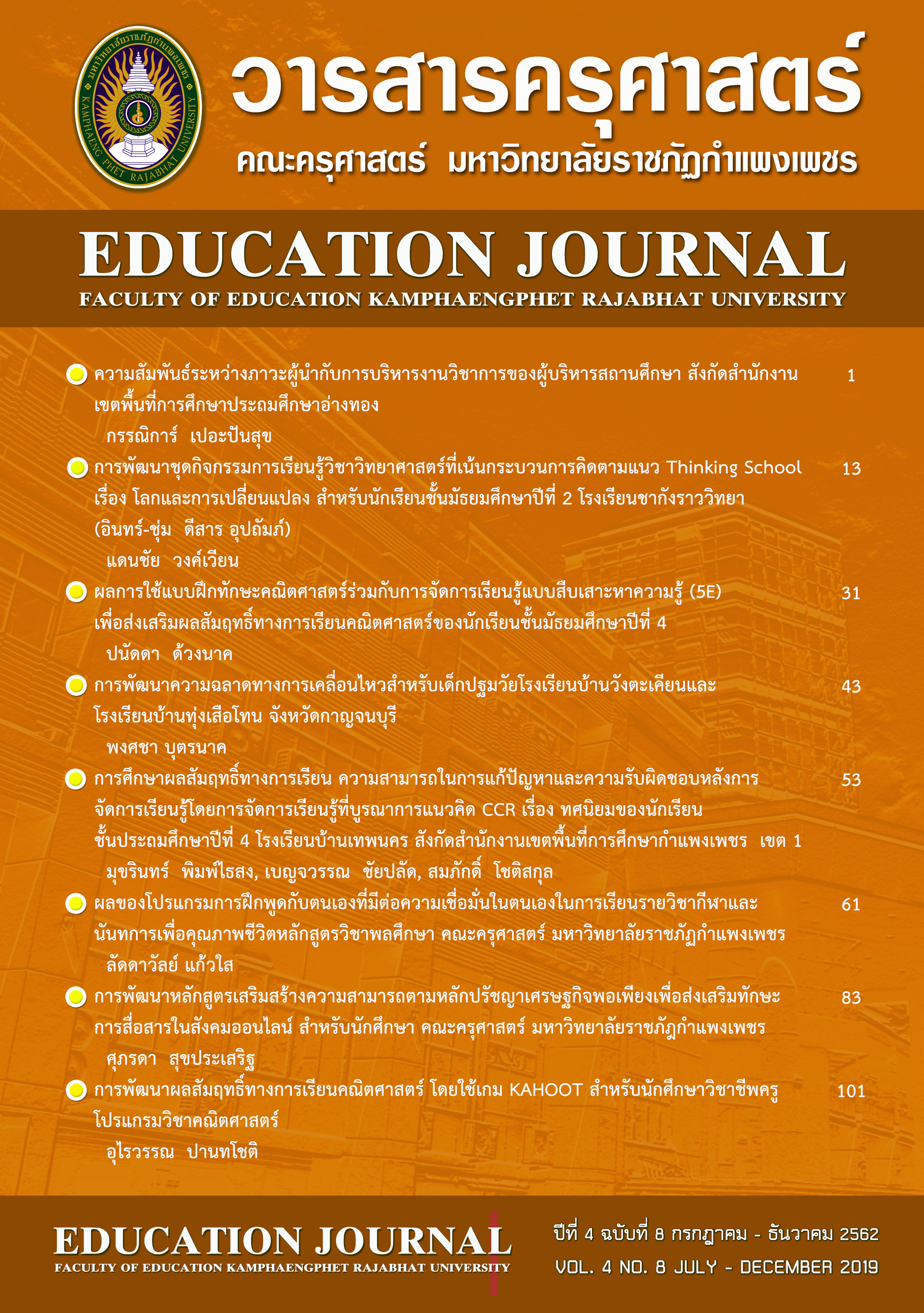THE EFFECTS OF SELF – TALK TRAINING TO SELF CONFIDENCE OF SPORTS AND RECREATION FOR WELL – BEING CLASS, PHYSICAL EDUCATION PROGRAM, FACULTY OF EDUCATION, KAMPHAENGPHET RAJABHAT UNIVERSITY
Main Article Content
Abstract
This research aims to study “The Effects of Self – Talk Training to Self Confidence on Learning in Corse of Sports and Recreation for Well- Being Class. Physical Education Program, Education Faculty, Kamphangphet Rajabhat University”. Forty students were population in the course of Sports and Recreation for Well- Being Class. And the thirty – one samples were selected by purposive sampling. T – test medthod was applied in statistical analysis. Questionnaire is data collection, self-anxiety level was determined before and after the self-talk training. The study results were compared by pre-test and post-test the intervention. The study found that the technique on self-talk training affected to self-anxiety level and self-confidence level. Comparison between before and after the intervention, the average mean value shows that that participants’ self-confidence level was improved significantly (at 0.05).
Article Details

This work is licensed under a Creative Commons Attribution-NonCommercial 4.0 International License.
CC Attribution-NonCommercial-NoDerivatives 4.0
References
สมบัติ กาญจนกิจ และสมหญิง จันทรุไทย. (2542). จิตวิทยาการกีฬา แนวคิด ทฤษฎี สู่การปฏิบัติ. กรุงเทพฯ. : ไทยวัฒนาพานิช.
สืบสาย บุญวีรบุตร. (2541). จิตวิทยาการกีฬา. ชลบุรี : ชลบุรีการพิมพ์.
Hardy, L., Jones, G., & Gould, D. (1996). Understanding psychological preparation for sport: Theory and practice of elite performers. Chichester, UK: Jones Wiley & Sons.
Theodorakis, Y., Weinberg, R., Natsis, P., Douma, E., & Kazakas, P. (2000). The effect of motivationl versus instructional ST on improving motor performance. The Sport Psychologist. 14: 253-272.


